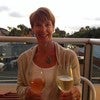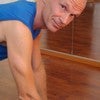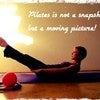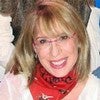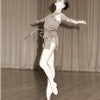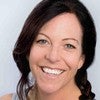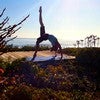Description
About This Video
Transcript
Read Full Transcript
So I'm really excited. We're here today with Deborah lesson and we're going to enlist her help on a question that I get all the time, which is how much exercise should I do or how much [inaudible] should I do? Um, and I get it from all sorts of people, whether I'm an athlete, whether I'm just starting out. So I'm going to open this tutorial first by greeting you. Thank you for being here again, Deborah. My pleasure. And if you could, you know, is there a straight answer to how much Pilati should I do? Well, I would like to go back
And I learned over the years that this was not a rhetorical question, but she was asking them, did you have a good night's sleep? Have you eaten yet today? How do your muscles feel? What do you have to do for the rest of the day? Like, do you have to save energy for other things later in the day? And, um, some people are very aware of these things and other people are very unaware. And as PyLadies teachers, we have to move our clients in the direction of becoming self aware so that they can learn to manage their own.
I would suggest that if you are exercising along with a video that you do some kind of either warm up or meditation, you know, whatever works for you beforehand so that you don't get carried away with the video and start doing things that maybe are not safe for you.
I would say in my twenties it would have been how many classes and how many hours of rehearsal do I have today so that I really get the purpose of my [inaudible] practice. It's a warmup and it's a way to pull my body together so that I don't hurt myself the rest of the day. I'm in my thirties after I stopped dancing my, my late thirties, I put more of my movement self into my pilates because I wasn't dancing any longer. So I wanted to do more in my sessions, you know, splits and things like that. Cause you didn't have to do them on stage later. That's right. I wasn't saving myself in my sixties.
My body is very different. I've had surgeries, um, I've had illnesses and my body doesn't feel the same. My muscles don't feel the same. I need much more warm up or I know my muscles will cramp. So if I embark on taking a class, say a video class, and I know that my hamstrings aren't stretched enough or not warm enough, I have to perhaps edit what I do in that class so that I don't cramp because it's a given. I know I will.
And the first thing I think of is, you know, here you are a dancer on stage in a big way and how do you, and that's when you're learning Pele's originally I know when I learned Pele's originally different, very in terms of where I was in my world and I was never a dancer. But how do you transition, how do you know when it's time to ask different questions or, or can you speak to the person who still thinks they're the dancer? You know, how do you know when you're asking the right question to know that you're getting appropriate level
Yes. Um, this is one of the most difficult life challenges and complicated questions because we could, we could go to a physical therapist and an orthopedist and they would give us guidelines, but really we have to use our instinct that is built over a very long period of time. There are no lines that we cross over when we transitioned from, you know, how we feel our body in our twenties to how we feel our body in our forties. It's a very slow change and noticing is the biggest and most arduous thing that we do throughout our lives. And as a matter of fact, as [inaudible] teachers, that observation of our clients over a very long period of time is 90 to 95% of what we do because that is our window into, uh, how that client is feeling subtle changes in their body over time. So it's the flip side of what we're trying to learn for, for ourselves. And, and do you think that people can do that without a teacher? I mean, I think some people can. I think other people need little nudges pushing them in the right direction. But as a teacher, it's so amazingly satisfying to see a client take the reins and say, no, I don't feel up to doing this today. I think I want to do that instead.
You know, your interaction with, with a doctor is basically when you don't feel well or on your annual wealth checkup, what, whereas your PyLadies teacher sees you at least once a week and see changes that are occurring in your body. Okay. So that's good. But what about the people that aren't regularly seeing a teacher? What about the people who, um, want to take responsibility for themselves but don't quite know how and what, what about those people? Well, again, I would accentuate noticing now we all, uh, suffer from, from wondering whether we're babying ourselves or whether we're pushing too hard because we think that we're supposed to. And so we, we all deal with that. But if you don't have a teacher or a person to bounce that off of, then you have to be noticing more.
If you notice that you complain to your or your family members about every little thing you're feeling in their body and they start pulling away from you, then maybe you're going a little too far. But, but basically, again, it comes down to your own instinct. And how does Pele's help that? Like I think you can use it
And that's your barometer. That's where you say, Oh, you know, this is really easy today. I feel great. I feel like I could jump more today. Um, because you can measure it against the last time you did that warm up. Yes. And every other day, right? Um, Corolla used to use to say that your, your Polonius was like carpet underlayment. What it was like the level of stuff that you put underneath the carpet. Oh, it doesn't show, but it's, it's the, the layer that makes it all work flesh.
And so if we can quote her children's book exercise, what it is, what it does at the very beginning. And this is aimed at children. She asks, um, you, you play ball, you run, you jump, you go to dance class, you ride your bicycle, why exercises? Well, and the answer is to do all those things better. So piles isn't an end in itself. It is, it services all the different ways in which you use your body, including your pedestrian life. I'd also like to mention that a Corolla says in her book that exercise is movement with a purpose. And so we need to constantly think about what the purpose is for each one of us.
May Not be the same for me as it is for you. Or the same for me at this age as 20 years ago. Same for me today as it was yesterday, if I'm correct. Correct. And so we go back to noticing, wow,
It's for the sake of living better. Um,
Comments
Intuition, intelligence, instinct... We have to open up for it and use it in our practice!
You need to be a subscriber to post a comment.
Please Log In or Create an Account to start your free trial.













